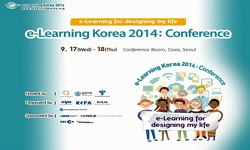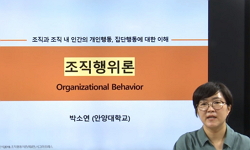본 연구는 성인학습자의 대학원 학습경험을 통한 학습동기의 변화 과정을 살펴보면서 성인학습자로서의 가능성을 탐색해보고자 하였다. 연구의 목적을 심층적으로 이해하기 위한 연구문제...
http://chineseinput.net/에서 pinyin(병음)방식으로 중국어를 변환할 수 있습니다.
변환된 중국어를 복사하여 사용하시면 됩니다.
- 中文 을 입력하시려면 zhongwen을 입력하시고 space를누르시면됩니다.
- 北京 을 입력하시려면 beijing을 입력하시고 space를 누르시면 됩니다.
https://www.riss.kr/link?id=T17092468
- 저자
-
발행사항
서울 : 연세대학교 교육대학원, 2024
-
학위논문사항
학위논문(석사) -- 연세대학교 교육대학원 , 평생교육경영전공 , 2024.8
-
발행연도
2024
-
작성언어
한국어
- 주제어
-
발행국(도시)
서울
-
기타서명
Exploring the process of change in learning motivation through the graduate learning experiences of adult learners
-
형태사항
viii, 140 p. : 삽화 ; 26 cm
-
일반주기명
지도교수: 이상오
-
UCI식별코드
I804:11046-000000556182
- 소장기관
-
0
상세조회 -
0
다운로드
부가정보
국문 초록 (Abstract)
연구의 목적을 심층적으로 이해하기 위한 연구문제는 다음과 같이 설정하였다.
첫째, 성인학습자로서 대학원 석사과정에 도전한 진학 동기는 무엇인가?
둘째, 성인학습자로서 대학원 진학 후, 경험한 학습경험과 어려웠던 점은 무엇인가?
셋째, 대학원 학습경험을 통해 학습동기는 어떻게 변화되었는가?
연구의 목적을 달성하기 위해 인간의 경험에 대한 이야기를 의미하며, 그러한 경험 이야기들을 해석하고 재해석하는 방법의 ‘내러티브 연구방법’으로 본 연구를 수행하였다. 직장생활과 학업을 병행했던 만 40세부터 만 43세까지의 성인 4인을 모집단으로 선정하여 총 4차에 걸쳐 심층면담을 진행하였다. 반구조화된 면담 방법을 주로 사용하였으며 연구자가 인터뷰 질문지를 토대로 기본 질문을 하고, 더 궁금한 내용이 있으면 즉석에서 후속 질문을 이어나갔다. 인터뷰 내용은 녹음 후 전사해 최소 5차례에 걸쳐 분석과정을 거쳤다. 본 연구를 통하여 도출된 결과는 다음과 같다.
첫째, 본 연구에 참여한 성인학습자들이 대학원에 진학하게 된 동기는 Houle(1961)에 의한 ‘목표 지향적’, ‘활동 지향적’, ‘학습 지향적’의 3가지 유형으로 나타났다. 먼저, 연구 참여자들은 모두 목표 지향적인 학습 동기를 갖고 대학원에 진학하였다. SKY대학 출신이 아니라는 꼬리표로 스스로를 위축시키는 학벌 콤플렉스를 극복하고자 진학했던 연구 참여자, 하나의 자격증처럼 여겨지는 학위의 의미를 일터에서 경험하면서 학위의 필요성에 의한 학습욕구를 해결하고자 진학했던 연구 참여자, 그리고 교사 자격증을 받기 위한 하나의 관문으로서의 목적으로 대학원에 진학했던 연구 참여자, 경쟁에서 뒤떨어지지 않기 위해 대학원에 진학했던 연구 참여자들이었다. 첫 번째의 진학 동기는 모두 목표 지향적이었지만 대학원 학습경험을 통해 연구 참여자들의 학습동기는 지식 외의 다른 전문성을 얻기 위한 활동 지향적을 거쳐, 스스로 찾아서 하는 공부의 즐거움을 알게 되면서 점차 삶의 변화를 위한 주체성을 찾는 학습 지향형으로 바뀌게 되었다. 연구 참여자들 스스로 ‘보다 나은 살아감’을 위해 현재에서의 삶의 변화에 대한 필요성을 느끼면서 지속적인 학습경험을 통해 배우고 익히고 학습하면서 조금 더 가치 있는 삶을 살아가야한다는 공통적인 참여 동기의 모습으로의 변화를 보여주었다. 둘째, 대학원에 진학하면서 전공 선택을 하는 우선적인 기준으로는 대학교에서 공부했던 전공과의 연계성이었지만 심도 있는 학문의 깊이와 방대한 자료의 양, 그리고 더 깊어진 전공용어들로 인한 대학원 전공수업에 대한 어려움을 경험하였고, 일과 학업의 병행에 따른 절대적인 시간의 부족 등의 이유로 학습경험을 유지하기 어려웠었다고 하였다. 셋째, 대학원 학습경험을 통해 연구 참여자들은 자기반성적인 사고를 하기 시작했고 반성적 성찰의 경험을 하게 되었다. 대학원에 입학하고 학습활동이 시작되면서 고민과 경험들이 더해지고 대학원의 진학동기를 다시 한 번 되묻기를 시작하면서 성인이었던 연구 참여자들은 ‘성인학습자’가 되어갔고 그들의 진짜 ‘학습경험’이 시작됨을 알게 되었다. 마지막으로, 연구 참여자들은 대학원에서의 학습경험을 마친 후, 본인의 삶과 일에 다각적인 변화를 맞이하기 시작하였다. 학습의 전 과정에서 의사결정과 행동의 주체가 되어 어떤 어려움 속에서도 내재적인 학습 동기를 관철시켜 학습을 지속하면서 스스로 자기계발을 하였고, 학습자 개인과 사회적 맥락 사이의 관계 속에서 자아를 찾아가려는 노력을 시작하게 되었다. 지속적인 학습경험을 통해 배우고 익히고 학습하면서 반성적인 자기성찰을 통해 조금 더 가치 있는 삶을 살아가야한다는 ‘삶과 배움의 의미’를 깨닫게 되면서 새로운 꿈을 꾸기 시작하였다.
본 연구는 성인학습자의 대학원 학습경험을 통한 학습동기의 변화 과정을 살펴보면서 성인학습자로서의 가능성을 탐색해보고자 하였다.
연구의 목적을 심층적으로 이해하기 위한 연구문제는 다음과 같이 설정하였다.
첫째, 성인학습자로서 대학원 석사과정에 도전한 진학 동기는 무엇인가?
둘째, 성인학습자로서 대학원 진학 후, 경험한 학습경험과 어려웠던 점은 무엇인가?
셋째, 대학원 학습경험을 통해 학습동기는 어떻게 변화되었는가?
연구의 목적을 달성하기 위해 인간의 경험에 대한 이야기를 의미하며, 그러한 경험 이야기들을 해석하고 재해석하는 방법의 ‘내러티브 연구방법’으로 본 연구를 수행하였다. 직장생활과 학업을 병행했던 만 40세부터 만 43세까지의 성인 4인을 모집단으로 선정하여 총 4차에 걸쳐 심층면담을 진행하였다. 반구조화된 면담 방법을 주로 사용하였으며 연구자가 인터뷰 질문지를 토대로 기본 질문을 하고, 더 궁금한 내용이 있으면 즉석에서 후속 질문을 이어나갔다. 인터뷰 내용은 녹음 후 전사해 최소 5차례에 걸쳐 분석과정을 거쳤다. 본 연구를 통하여 도출된 결과는 다음과 같다.
첫째, 본 연구에 참여한 성인학습자들이 대학원에 진학하게 된 동기는 Houle(1961)에 의한 ‘목표 지향적’, ‘활동 지향적’, ‘학습 지향적’의 3가지 유형으로 나타났다. 먼저, 연구 참여자들은 모두 목표 지향적인 학습 동기를 갖고 대학원에 진학하였다. SKY대학 출신이 아니라는 꼬리표로 스스로를 위축시키는 학벌 콤플렉스를 극복하고자 진학했던 연구 참여자, 하나의 자격증처럼 여겨지는 학위의 의미를 일터에서 경험하면서 학위의 필요성에 의한 학습욕구를 해결하고자 진학했던 연구 참여자, 그리고 교사 자격증을 받기 위한 하나의 관문으로서의 목적으로 대학원에 진학했던 연구 참여자, 경쟁에서 뒤떨어지지 않기 위해 대학원에 진학했던 연구 참여자들이었다. 첫 번째의 진학 동기는 모두 목표 지향적이었지만 대학원 학습경험을 통해 연구 참여자들의 학습동기는 지식 외의 다른 전문성을 얻기 위한 활동 지향적을 거쳐, 스스로 찾아서 하는 공부의 즐거움을 알게 되면서 점차 삶의 변화를 위한 주체성을 찾는 학습 지향형으로 바뀌게 되었다. 연구 참여자들 스스로 ‘보다 나은 살아감’을 위해 현재에서의 삶의 변화에 대한 필요성을 느끼면서 지속적인 학습경험을 통해 배우고 익히고 학습하면서 조금 더 가치 있는 삶을 살아가야한다는 공통적인 참여 동기의 모습으로의 변화를 보여주었다. 둘째, 대학원에 진학하면서 전공 선택을 하는 우선적인 기준으로는 대학교에서 공부했던 전공과의 연계성이었지만 심도 있는 학문의 깊이와 방대한 자료의 양, 그리고 더 깊어진 전공용어들로 인한 대학원 전공수업에 대한 어려움을 경험하였고, 일과 학업의 병행에 따른 절대적인 시간의 부족 등의 이유로 학습경험을 유지하기 어려웠었다고 하였다. 셋째, 대학원 학습경험을 통해 연구 참여자들은 자기반성적인 사고를 하기 시작했고 반성적 성찰의 경험을 하게 되었다. 대학원에 입학하고 학습활동이 시작되면서 고민과 경험들이 더해지고 대학원의 진학동기를 다시 한 번 되묻기를 시작하면서 성인이었던 연구 참여자들은 ‘성인학습자’가 되어갔고 그들의 진짜 ‘학습경험’이 시작됨을 알게 되었다. 마지막으로, 연구 참여자들은 대학원에서의 학습경험을 마친 후, 본인의 삶과 일에 다각적인 변화를 맞이하기 시작하였다. 학습의 전 과정에서 의사결정과 행동의 주체가 되어 어떤 어려움 속에서도 내재적인 학습 동기를 관철시켜 학습을 지속하면서 스스로 자기계발을 하였고, 학습자 개인과 사회적 맥락 사이의 관계 속에서 자아를 찾아가려는 노력을 시작하게 되었다. 지속적인 학습경험을 통해 배우고 익히고 학습하면서 반성적인 자기성찰을 통해 조금 더 가치 있는 삶을 살아가야한다는 ‘삶과 배움의 의미’를 깨닫게 되면서 새로운 꿈을 꾸기 시작하였다.
다국어 초록 (Multilingual Abstract)
1. What motivated adult learners to pursue a master's program in graduate school?
2. What learning experiences and challenges did they encounter after enrolling in graduate school as adult learners?
3. How did their learning motivation change through their graduate learning experiences?
To achieve the study's objectives, a 'narrative research method' was employed, which involves interpreting and reinterpreting the stories of human experiences. The study selected a population of four adults aged 40 to 43 who were balancing work and study and conducted in-depth interviews four times. A semi-structured interview method was primarily used, where the researcher asked basic questions based on an interview guide and followed up with additional questions as needed. The interview content was recorded, transcribed, and analyzed through at least five stages. The results derived from this study are as follows:
1. The motivations for enrolling in graduate school among the adult learners in this study fell into Houle’s (1961) three categories: 'goal-oriented', 'activity-oriented', and 'learning-oriented'. All participants initially enrolled in graduate school with goal-oriented motivations. Reasons included overcoming the inferiority complex of not graduating from a top-tier university, fulfilling the perceived necessity of a degree experienced in the workplace, obtaining a teaching certificate, and staying competitive. While the initial motivation was goal-oriented, through their graduate learning experiences, the participants' motivations evolved into activity-oriented to gain other professional skills and eventually became learning-oriented as they discovered the joy of learning and sought personal growth.
2. Participants chose their graduate majors primarily based on the continuity with their undergraduate studies. However, they faced difficulties with the depth of the academic content, the vast amount of resources, and the advanced terminology used in their major courses. Balancing work and study also posed significant challenges due to a lack of time.
3. Through their graduate learning experiences, participants began engaging in self-reflective thinking and experiencing reflective introspection. As they progressed, they revisited their motivations for enrolling in graduate school, transitioning from simply being adults to becoming 'adult learners' and embarking on their true 'learning experiences'. After completing their graduate studies, participants experienced multifaceted changes in their lives and careers. They became the decision-makers and actors in their learning journey, sustaining their intrinsic motivation despite challenges, and engaging in continuous self-development. In this process, they started striving to find their identity within the context of their individual and social environments. Through ongoing learning experiences, participants learned, practiced, and studied, realizing the 'meaning of life and learning' through reflective self-examination and began to dream new dreams for their future.
This study aimed to explore the potential of adult learners by examining the process of change in their learning motivation through their graduate learning experiences. To deeply understand the study's purpose, the following research questions were es...
This study aimed to explore the potential of adult learners by examining the process of change in their learning motivation through their graduate learning experiences. To deeply understand the study's purpose, the following research questions were established:
1. What motivated adult learners to pursue a master's program in graduate school?
2. What learning experiences and challenges did they encounter after enrolling in graduate school as adult learners?
3. How did their learning motivation change through their graduate learning experiences?
To achieve the study's objectives, a 'narrative research method' was employed, which involves interpreting and reinterpreting the stories of human experiences. The study selected a population of four adults aged 40 to 43 who were balancing work and study and conducted in-depth interviews four times. A semi-structured interview method was primarily used, where the researcher asked basic questions based on an interview guide and followed up with additional questions as needed. The interview content was recorded, transcribed, and analyzed through at least five stages. The results derived from this study are as follows:
1. The motivations for enrolling in graduate school among the adult learners in this study fell into Houle’s (1961) three categories: 'goal-oriented', 'activity-oriented', and 'learning-oriented'. All participants initially enrolled in graduate school with goal-oriented motivations. Reasons included overcoming the inferiority complex of not graduating from a top-tier university, fulfilling the perceived necessity of a degree experienced in the workplace, obtaining a teaching certificate, and staying competitive. While the initial motivation was goal-oriented, through their graduate learning experiences, the participants' motivations evolved into activity-oriented to gain other professional skills and eventually became learning-oriented as they discovered the joy of learning and sought personal growth.
2. Participants chose their graduate majors primarily based on the continuity with their undergraduate studies. However, they faced difficulties with the depth of the academic content, the vast amount of resources, and the advanced terminology used in their major courses. Balancing work and study also posed significant challenges due to a lack of time.
3. Through their graduate learning experiences, participants began engaging in self-reflective thinking and experiencing reflective introspection. As they progressed, they revisited their motivations for enrolling in graduate school, transitioning from simply being adults to becoming 'adult learners' and embarking on their true 'learning experiences'. After completing their graduate studies, participants experienced multifaceted changes in their lives and careers. They became the decision-makers and actors in their learning journey, sustaining their intrinsic motivation despite challenges, and engaging in continuous self-development. In this process, they started striving to find their identity within the context of their individual and social environments. Through ongoing learning experiences, participants learned, practiced, and studied, realizing the 'meaning of life and learning' through reflective self-examination and began to dream new dreams for their future.
목차 (Table of Contents)
- I. 서 론 1
- 1. 연구의 필요성 및 목적 1
- 2. 연구문제 5
- 3. 용어의 정의 5
- I. 서 론 1
- 1. 연구의 필요성 및 목적 1
- 2. 연구문제 5
- 3. 용어의 정의 5
- II. 이론적 배경 7
- 1. 성인교육과 성인학습자 7
- 가. 성인교육 7
- 나. 성인학습자 11
- 2. 성인학습자의 학습동기 14
- 가. 학습동기의 개념 14
- 나. 성인교육의 학습동기의 형성요인 : 학습자의 특성 요인 15
- 다. 성인학습자의 학습참여 동기 유형 16
- 3. 성인학습자의 특성 19
- 가. 성인학습자의 학습특성 19
- 나. 성인학습자의 자기주도 학습능력 21
- 다. 성인학습자의 경험학습 29
- 4. 성인학습자의 학습경험 41
- 가. 학습경험의 정의 41
- 나. 학습경험의 과정 41
- 5. 대학원의 특성 43
- 가. 대학원의 교육목적 43
- 나. 대학원의 교육적 특성 45
- III. 연구방법 48
- 1. 내러티브 연구 48
- 2. 연구 참여자 선정 50
- 가. 연구 참여자 50
- 나. 연구 참여자의 소개 52
- 3. 자료 수집 및 분석 54
- 4. 연구의 윤리적 고려 57
- 5. 연구의 한계점 57
- IV. 연구결과 58
- 1. 김철수의 대학원 학습경험 이야기 58
- 가. 공무원 집안의 장남의 꿈 59
- 나. 두 번의 석사학위 61
- 다. 뒤늦게 깨달은 대학원에서의 학습경험의 즐거움 65
- 라. 드디어 박사과정에 도전하는 꿈을! 70
- 2. 오상철의 대학원 학습경험 이야기 72
- 가. 아버지의 부재로 인한 아들의 무게 72
- 나. 대학원 진학 이야기 75
- 다. 어려운 전공 선택을 헤쳐 나가야 했던 대학원 생활 78
- 라. 오상철의 작은 도서관 81
- 3. 박하늘의 대학원 학습경험 이야기 83
- 가. 하고 싶은 것은 꼭 하는 외동딸 84
- 나. 교육대학원 진학이야기 85
- 다. 교직이수를 향한 대학원에서의 학습경험 86
- 라. 새로운 적성 발견! 진로상담교사 ‘박하늘’ 89
- 4. 신소망의 대학원 학습경험 이야기 96
- 가. 꿈을 앗아갔던 IMF 96
- 나. 일반대학원 자퇴에서 교육대학원 입학까지 98
- 다. 대학원 학습경험 이야기 102
- 라. 그림 그리는 여행 작가 ‘신소망’ 105
- V. 요약, 결론 및 제언 111
- 1. 요약 111
- 2. 결론 113
- 3. 제언 120
- 참고문헌 122
- 부 록 134
- 1. 연구 참여 동의서 134
- 2. 면담 조사지 135
- Abstract 138












